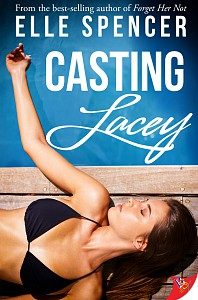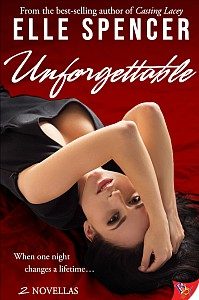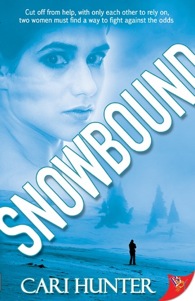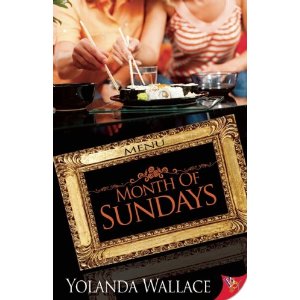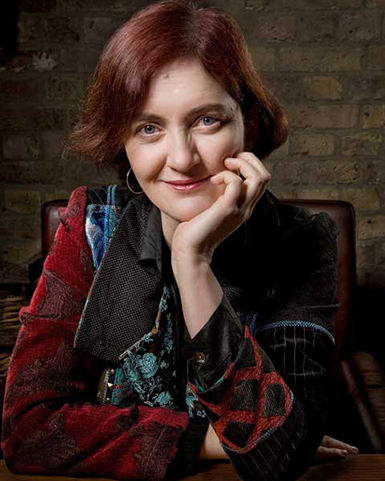Anna Burke is not just one of my favorite lesfic authors—she’s one of my all time favorite authors, period. I love her dystopian lesbian pirate debut novel so much that I’ve convinced 6+ different friends to read it, essentially turning my Sapphic Bookstagram group chat into the unofficial Compass Rose fan club, and I credit Burke’s 2019 Goldie Award winning book, Thorn (an F/F Beauty & the Beast re-imagining), with reigniting my long dormant love for reading.
I recently had the pleasure of interviewing Burke about her newest book, Spindrift. A contemporary romance, Spindrift is definitely a departure from her previous work, but I found it to be equally delightful!
Landice: Thank you so much for agreeing to speak with me, Anna! Would you like to introduce yourself to readers not yet familiar with you or your work?
Anna Burke: Sure! I am predominately a speculative fiction writer. My first book, Compass Rose, is a dystopian high-seas lesbian pirate novel, and my next two books, Thorn and Nottingham, are retold fairytales (Beauty and the Beast and the legend of Robin Hood, respectively). But most people know me as Artemis’s dog mom.
Landice: That’s certainly how I know you! [laughs] But, speaking of dogs, Spindrift is a romance between two dog moms, which I loved. I mean, there’s a lot more to Emilia and Morgan than their dogs, but Nell and Kraken do play an important part in the novel! Is Kraken (a German Shepherd) based off of your own pup? These are the sort of hard-hitting questions Lesbrary readers are here for, obviously.
Anna: Kraken is absolutely based on my GSD, and another dog, who will appear in later books, is inspired by my Cocker Spaniel. I couldn’t resist! I love writing animals into my work–and not just because I love animals, though that admittedly might have a lot to do with it. From a craft perspective, how characters interact with their pets can reveal a great deal about them, and they can also serve as a humanizing influence on characters who might otherwise be irredeemable. And, let’s face it—us queers love our pets.
Landice: Very true! Emilia is definitely a bit of an ice queen at first—or, we can tell that’s how she wants to be seen, at least, because she’s still very fragile and sort of cagey post-breakdown. But her interactions with Nell and with other animals in the first part of the novel really help us glimpse past the emotional walls she puts up! And as someone who also struggles with anxiety and other mental illnesses, I really appreciated the care you took in writing Emilia’s own mental health issues. What, if any, were some of the challenges you faced in writing that aspect of the novel?
Anna: This is a great question. Mental health is a topic that is close to my heart, and is something that I–as well as most of the people I know—struggle with. Not only is it a major issue in the veterinary profession, but it also is something that the queer community faces disproportionately. I’m queer and married to a veterinarian (laughs). By far the biggest challenge I faced in writing Emilia’s character was figuring out how to faithfully portray her struggles while also conveying a sense of hope. She’s faced some tough shit, and will continue to deal with that, but she’s also learning how to live with it, and that’s where I wanted to put the focus of the novel. Sometimes surviving is the bravest thing we can do. Emilia is brave, and because I write fiction, her reward is new friends, old love, lots of dogs, and, well… a few boat scenes, let’s just say.
Landice: And what excellent boat scenes they are! The steamier sections of Spindrift are stellar, some of the best I’ve read in a long time, but honestly, the mental health aspects were what really stood out to me. You know that meme that’s gone around lately, “Sure sex is great, but…”? Spindrift reminds me of that. “Sure, sex is great, but have you ever read a romance novel that also has phenomenal mental health rep?” [laughs]
Anna: Omg, that’s amazing. And then there’s Morgan, who is in total denial about her own issues… As a reader (and a writer and a human), I really do think that the deeper the emotional connection, the better the sex/the bigger the payoff. For these characters, an emotional connection isn’t possible without navigating the emotional depths they’ve both sunk to, which also offers such good potential for conflict. And, you know. Some good flannel ripping.
Landice: Flannel ripper! Oh, my god. That is the best possible way to describe this novel, honestly. Why aren’t flannel rippers a thing in the lesfic community, yet? Can we make them a thing? Anyway, I know you’re currently working on the second Seal Cove romance, Night Tide. What are the biggest differences, you’ve found, between writing both speculative fiction and contemporary romance?
Anna: I feel like #flannelripper has to already be a thing, but it clearly needs to be a BIGGER thing. Let’s make it happen. Honestly, I love hopping genres. It’s like solving different puzzles, and it lets me explore different storylines and settings. It also keeps me from getting stuck—I work on multiple projects simultaneously, and working in different genres often gets me out of writer’s block.
It’s funny—I thought there would be larger differences. I did enjoy not having to create entire worlds and societies, and there was less research involved (though again, being married to a vet made the veterinary research component easy). But characterization and world-building are the same regardless of genre. [laughs] Probably the biggest difference is that I wanted the characters in these stories to be happy. Anyone who follows me on social media knows this is a big departure from the norm!
Landice: It’s a nice change from your other books, I must say. I love the others, but they definitely hurt. [laughs] I’d love to have you back once Sea Wolf (Compass Rose sequel) is out in the world, that’d be a very different conversation. But to wrap up, how would you describe Spindrift to a potential reader in a couple sentences or so? Aside from #FlannelRipper, what’s your elevator pitch?
Anna: [laughs] Okay. Butch bottom falls for femme top/flex, plus dogs.
Landice: Yeah, I’d say that pretty much sums things up! [laughs] Thank you so much for speaking with me!
Spindrift’s official release date is August 25th, but you can snag your copy now, exclusively through the Bywater Books website!
Spindrift Description:
Can a hot summer fling mend the hearts of two broken women?
Morgan Donovan had everything she ever wanted: a dream job as a large animal veterinarian, awesome friends, and a loving and supportive fiancée. But it all comes crashing down when her fiancée dumps her after realizing that Morgan’s job will always come first. And, while Morgan still has the job and friends, her heart is broken into a million tiny pieces.
Emilia Russo is a burned-out shelter vet. When the unexpected death of her father triggers a mental breakdown that hastens the end of her relationship, she retreats to his house in Seal Cove, Maine. She plans on spending the summer renovating it while she figures out how to pull the pieces of her life back together. But when she runs into Morgan at the dock where her father’s sailboat is moored, her plans for a quiet summer of healing and reflection sink like a stone—the attraction is immediate and obvious, and Emilia finds herself slipping seamlessly into Morgan’s world.
Each woman knows this fling will end when Emilia returns to Boston at the end of the summer, but they’re unprepared for the intensity and depth of their attraction. And, as the gales of fall begin to drive leaves like spindrift upon Seal Cove, Morgan and Emilia must each come to terms with how much they’re willing to give up to stay together.
Content Warnings: past suicidality, death of a parent (off page), mentions of animal euthanasia
 Anna Burke was the inaugural recipient of the Sandra Moran Scholarship from the GCLS Writing Academy and is currently pursuing an MFA in Creative Writing at Emerson College. Her queer feminist novel, Thorn, was named 2019 LGBTQ+ book of the year by Foreword Reviews. When she isn’t writing or reading, she can usually be found drinking tea or playing with her dogs.
Anna Burke was the inaugural recipient of the Sandra Moran Scholarship from the GCLS Writing Academy and is currently pursuing an MFA in Creative Writing at Emerson College. Her queer feminist novel, Thorn, was named 2019 LGBTQ+ book of the year by Foreword Reviews. When she isn’t writing or reading, she can usually be found drinking tea or playing with her dogs.
You can find her as annaburkeauthor on Patreon, Instagram, Twitter, or on her website, annahburke.com.
Landice is an autistic lesbian graphic design student who lives on a tiny farm outside of a tiny town in rural Texas. Her favorite genres are sci-fi, fantasy & speculative fiction, and her favorite tropes are enemies-to-lovers, thawing the ice queen, & age gap romances. Landice drinks way too much caffeine, buys more books than she’ll ever be able to read, and dreams of starting her own queer book cover design studio one day.
You can find her as manicfemme on Bookstagram & Goodreads, and as manic_femme on Twitter. Her personal book blog is Manic Femme Reviews.

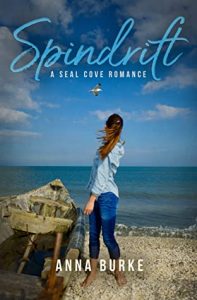
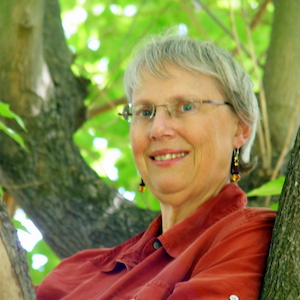 Heather Rose Jones is the author of the Alpennia historic fantasy series: an alternate-Regency-era Ruritanian adventure revolving around women’s lives woven through with magic, alchemy, and intrigue. Her short fiction has appeared in The Chronicles of the Holy Grail, Sword and Sorceress, Lace and Blade, and at Podcastle.org. Heather blogs about research into lesbian-relevant motifs in history and literature at the
Heather Rose Jones is the author of the Alpennia historic fantasy series: an alternate-Regency-era Ruritanian adventure revolving around women’s lives woven through with magic, alchemy, and intrigue. Her short fiction has appeared in The Chronicles of the Holy Grail, Sword and Sorceress, Lace and Blade, and at Podcastle.org. Heather blogs about research into lesbian-relevant motifs in history and literature at the 